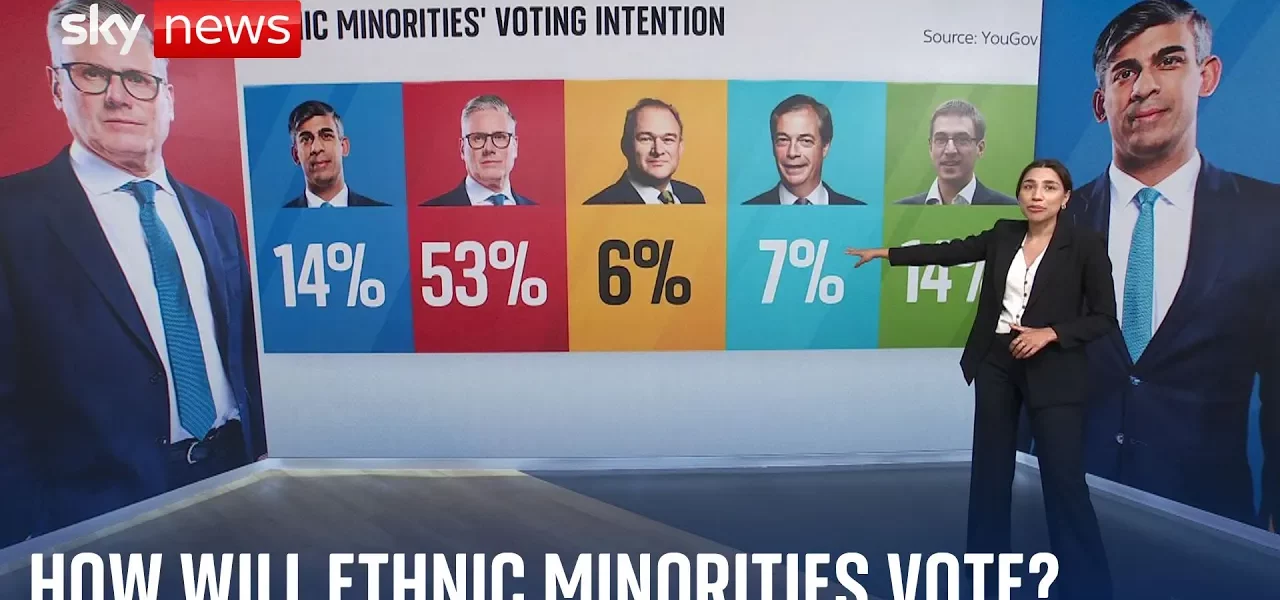Voting Trends Among Ethnically Diverse Communities

This article delves into the complex and evolving voting trends within ethnically diverse communities in the UK, analyzing polling data and key issues that influence voter sentiment ahead of the upcoming elections.
Introduction
The voting dynamics of ethnically diverse communities in the UK present a multifaceted and sometimes unpredictable landscape. As election day looms closer, understanding how these communities plan to vote is critical for political parties aiming to secure their support. Polling data reveals significant insights into the preferences and priorities of ethnic minority voters, highlighting the differences from the general population and shedding light on the key issues that matter to them.
Polling Insights: Ethnic Minority Voter Preferences
Recent polling data indicates a marked divergence in voting intentions between ethnically diverse communities and the broader electorate. Historically, the Labour Party has enjoyed substantial support from these communities. According to the latest polls:
- 53% of ethnically diverse voters indicate they would vote for Labour, reflecting a stronger preference than the general population.
- The Conservative Party has seen lower support, with only 14% of ethnic minority voters favoring them, which places them in close competition with the Green Party.
- Notably, 32% of British Indians expressed support for the Conservative Party, a figure that is 12 points higher than their support among the general population.
Challenges for Reform UK and the Liberal Democrats
When examining the performance of other political parties, Reform UK struggles significantly among ethnic minority voters. They have garnered only 7% support, which is marginally above the Liberal Democrats, who are facing similar challenges in attracting this demographic.
Key Factors Influencing Support
Several issues underpin voter preferences among ethnic minorities:
- Cost of Living: This issue stands out as the highest priority for ethnic minority voters.
- NHS Concerns: In contrast, the NHS ranks as the top concern for the general population.
- Housing: Ethnic minority communities place a greater emphasis on housing issues compared to the overall voter base.
- International Conflicts: Concerns about the Israel-Gaza conflict resonate strongly, particularly among British Pakistanis and Bangladeshis, with 41% marking it as a priority.
The Impact of the Gaza Effect on Party Support
Polling experts have noted a phenomenon referred to as the “Gaza effect,” which has adversely affected party support, particularly for Labour. A significant portion of ethnic minority voters, specifically:
- More than 50% of ethnic minority voters believe Labour has mishandled the Israel-Gaza issue.
- A staggering 78% of British Pakistanis and Bangladeshis feel Labour’s performance on this issue has been inadequate.
Despite these challenges, it is crucial to recognize that Labour still maintains higher overall support from ethnic minorities than from the general population. This indicates a complex relationship that the party must navigate carefully.
Labour’s Defensive Campaigning Strategy
In response to the shifting sentiments within ethnically diverse communities, Labour has adjusted its campaign strategy. The party’s campaign app is now directing activists to focus on defending 16 constituencies that feature significant numbers of diverse voters. One notable constituency is Birmingham Ladywood, which has historically been a Labour stronghold with a majority of over 28,000 votes.
Implications for Labour’s Future
While Labour’s campaign efforts may help retain some support, the increasing concerns over foreign policy and community issues could foreshadow a long-term decline in their voter base among ethnically diverse communities. This trend could pose significant challenges for the party if they successfully ascend to government, as maintaining electoral support in these key areas will be critical.
Conclusion
In conclusion, understanding the voting trends of ethnically diverse communities is essential for political parties in the UK, particularly as they approach the upcoming elections. The polling data reveals that while Labour retains a lead in support among these voters, significant concerns regarding key issues such as the cost of living, housing, and foreign policy could threaten their long-term viability in these communities. Political parties must adapt their strategies to address these concerns effectively. For more insights and analyses on voting trends and community priorities, explore our related articles.
“`




